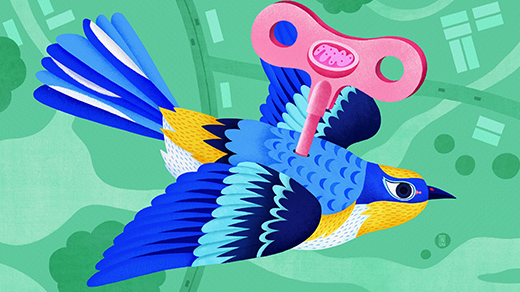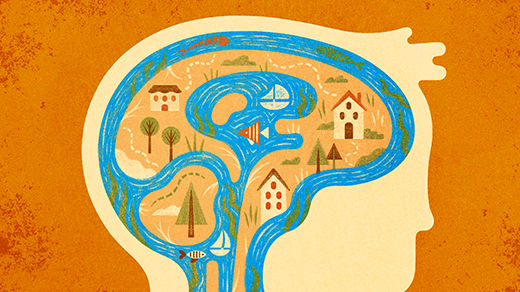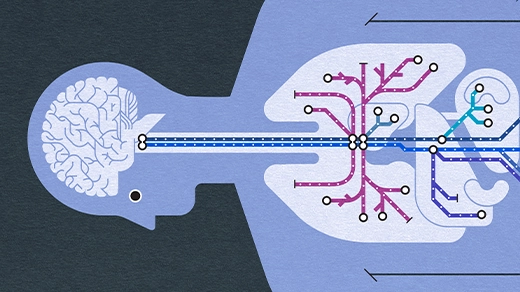What's up in
Physiology
Latest Articles
How the Brain Balances Excitation and Inhibition
A healthy brain maintains a harmony of neurons that excite or inhibit other neurons, but the lines between different types of cells are blurrier than researchers once thought.
What Does It Mean To Be Thirsty?
The effects of insufficient water are felt by every cell in the body, but it’s the brain that manifests our experience of thirst.
How Much Energy Does It Take To Think?
Studies of neural metabolism reveal our brain’s effort to keep us alive and the evolutionary constraints that sculpted our most complex organ.
‘Turbocharged’ Mitochondria Power Birds’ Epic Migratory Journeys
Slight changes in the number, shape, efficiency and interconnectedness of organelles in the cells of flight muscles provide extra energy for birds’ continent-spanning feats.
The Mysterious Flow of Fluid in the Brain
A popular hypothesis for how the brain clears molecular waste, which may help explain why sleep feels refreshing, is a subject of debate.
Fish Have a Brain Microbiome. Could Humans Have One Too?
The discovery that other vertebrates have healthy, microbial brains is fueling the still controversial possibility that we might have them as well.
How Our Longest Nerve Orchestrates the Mind-Body Connection
Like a highway system, the vagus nerve branches profusely from your brain through your organs to marshal bodily functions, including aspects of mind such as mood, pleasure and fear.
The Brainstem Fine-Tunes Inflammation Throughout the Body
The evolutionarily ancient part of the brain that controls breathing and heart rate also regulates the immune system — a discovery about the brain-body axis made by experts on taste.
In the Gut’s ‘Second Brain,’ Key Agents of Health Emerge
Sitting alongside the neurons in your enteric nervous system are underappreciated glial cells, which play key roles in digestion and disease that scientists are only just starting to understand.








